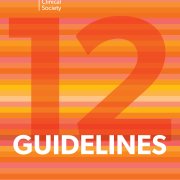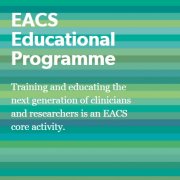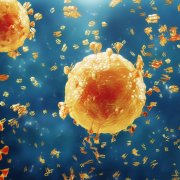Interview with Dr Magdalena Ankiersztejn-Bartczak on International Youth Day
On the occasion of the International Youth Day, which aims to raise awareness of challenges and problems facing the world’s younger generations, the EACS secretariat interviewed Dr Magdalena Ankiersztejn-Bartczak, a well-recognized HIV activist and PLWH advocate in Poland. She is the president of Foundation for Social Education (FES), an NGO Polish organisation which in addition to the HIV field, delivers education in numerous areas, such as sexual health, cancer prevention, and many others. Her background is in pedagogy, sexual education and sociology and she is the author and coordinator of numerous educational programmes delivering knowledge on HIV and fighting stigma and discrimination towards PLWH in Poland. She is an EACS member.
According to UNAIDS data, every day around 1600 youth between the ages of 15 and 24 acquire HIV worldwide, and a young person dies every 10 minutes due to AIDS-related illness. What do you believe are the biggest challenges to HIV prevention among youth?
HIV infection, a disease that we have known for over 30 years, has become common in many countries around the world. Nowadays, we know the routes of infection and the course of it, and we have effective methods to reduce its spreading. In many countries, the situation seems to be under control. However, there is a tendency to forget that this infection is transmitted through sexual contact and the new generation needs intensive and long-term education on the matter. In my opinion, many decision-makers perceive HIV infection as under control and they do not understand that the lack of prevention programmes result in further infections. Furthermore, there is a visible increase in the number of other sexually transmitted diseases and the lack of sexual education has definitely an impact on the rate of infections among young people.
Which role does sexual education in schools play in fostering a correct knowledge of HIV and STIs among the younger generations?
A key role. Young people must be educated on HIV and STIs before becoming sexually active. Too many of them engage in risky behavior without a basic understanding of how to prevent STIs. Moreover, access to psychoactive substances is much easier and wider now than it was 10 years ago. Currently, a young person could easily find information about where to get a psychoactive substance. As such, that person should also be able to access knowledge about harm reduction and forms of protection from STIs.
How do you believe NGOs like FES can make the difference in addressing the issue of misinformation on HIV and STIs among youth in countries where sexual education is not included in the school curriculum?
There are fewer and fewer organisations and institutions offering prophylactic activities in the field of reproductive health. NGOs like mine provide reliable, evidence-based knowledge and have many years of experience in working with young people, including youth living with HIV. A teacher, who knows about HIV only from books, reaches young people in a different way than an HIV counselor who has experience in announcing an HIV test results to young people. A trained counselor can understand the emotions of a recently diagnosed person and can share other people’s personal stories; this way of communicating much more effective than a frontal lesson on STIs. Non-governmental organisations have the ability to adapt content to the recipient and spread it through different channels, including social media, nowadays the main source of news for the younger generation. As educators, we should be prepared to adapt our actions to communicate effectively with them.
In many states around the world age of consent requirements are still in place to access HIV services. How do you think these requirements affect the youth's ability to receive adequate HIV treatment?
The fact that young people are allowed to have sex but are not allowed to take care of their health is beyond my understanding. Anyone who has had risky behaviour should easily access a STIs test. In Poland, people under the age of 18 can do it only with a legal guardian. This is incomprehensible; none of us would like to ask our parents to accompany us for HIV testing! This is a personal and private matter. Lack of access to HIV testing results in late diagnosis of infections and involuntary exposure of partners to the virus. For many people living with HIV, the thought that they might have transmitted the virus to somebody is much more difficult to bear than living with HIV. Effective prevention means access to reliable knowledge and care, including testing.
Are young girls more disadvantaged in terms of accessing HIV testing and care than their male counterparts? Why?
In Poland, limited access to care applies to everyone under 18 years of age, and access to reliable information on sexual and reproductive health is poor in the entire population, regardless of their gender.
What could be an effective response to prevent HIV infection among young people?
Prevention programmes and targeted actions using new technologies. Social media is where young people communicate with each other and spend most of their time. Hence, knowledge and preventive measures on HIV and STIs should circulate in these channels. Most of all, these actions should be long-term, not incidental, but strategic.
Do you have anything to add that you think is important but hasn’t been covered in the previous questions/answers?
Even if HIV and STIs are not new phenomena, we should still be dealing with them with the same sensitivity and consistency of when the epidemic began. New generations could avoid infections if preventive measures were long-term, well-thought-out, and continuous. We are still far from achieving the goals of 90-90-90 and the new generations often enter their adulthood without basic sexual education. We have effective methods of HIV prevention, but, if we don’t use them efficiently, we won’t be able to control the HIV epidemic.

20th European AIDS Conference
15-18 October 2025 Paris, France

EACS Guidelines updated
The EACS 12.0 and the app are available for free on

Educational Programme
Training and educating the next generation of clinicians and researchers is an EACS core activity.

EACS Resource Library
Access all scientific content of EACS core activities! (members only)
